Audio available in app
Understanding neural mechanisms can lead to novel treatments for brain disorders from "summary" of Phantoms in the Brain by V. S. Ramachandran
By studying how the brain functions at a neural level, researchers have the potential to uncover new insights into the underlying mechanisms of various brain disorders. This knowledge can then be used to develop innovative treatments that target these specific neural pathways or processes. For example, by understanding how certain areas of the brain are involved in conditions such as phantom limb pain or synesthesia, scientists can devise therapies that directly address these abnormalities. One of the key advantages of this approach is that it allows for more targeted and personalized treatments, as opposed to more generic or broad-based interventions. By tailoring therapies to the specific neural mechanisms at play in a particular disorder, it may be possible to achieve more effective and efficient outcomes for patients. This can lead to a significant improvement in quality of life for those suffering from brain disorders, as well as potentially reducing the overall burden on the healthcare system. Moreover, delving into the neural underpinnings of brain disorders can also shed light on the fundamental workings of the brain itself. By investigating how the brain responds to various stimuli or how it adapts to changes in its environment, researchers can gain a deeper understanding of the intricacies of neural circuitry. This knowledge not only has implications for treating brain disorders but also for advancing our understanding of cognition, perception, and consciousness.- The exploration of neural mechanisms in the context of brain disorders holds great promise for both clinical applications and scientific discovery. By unraveling the mysteries of the brain at a cellular and molecular level, researchers can pave the way for groundbreaking treatments that have the potential to transform the field of neurology. Through continued research and innovation in this area, we may unlock new frontiers in the diagnosis and treatment of brain disorders, ultimately improving the lives of countless individuals worldwide.


